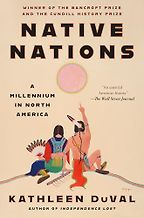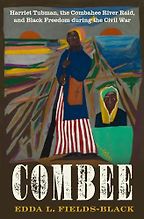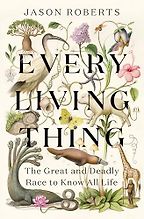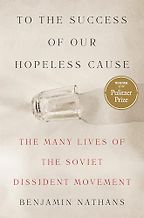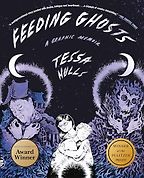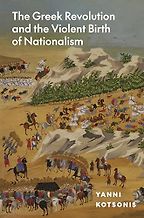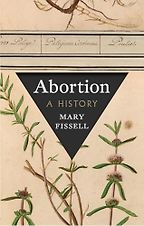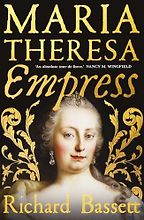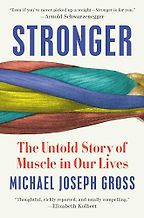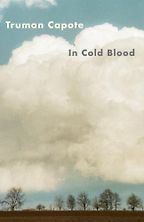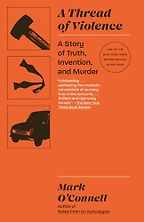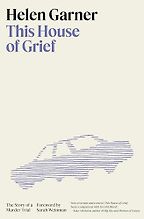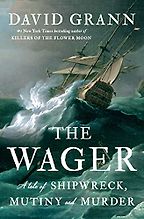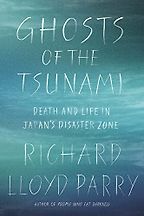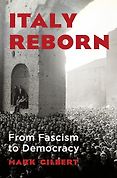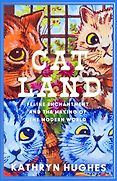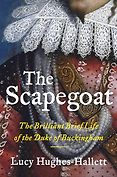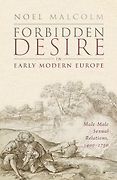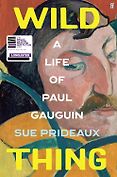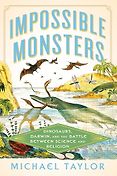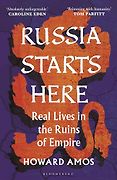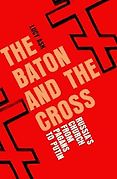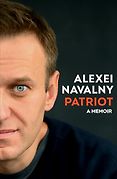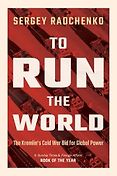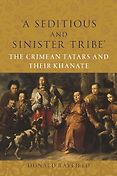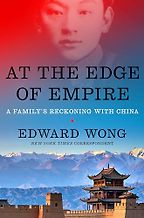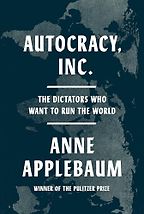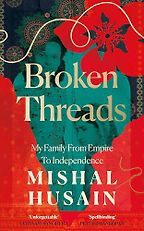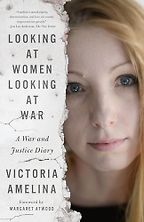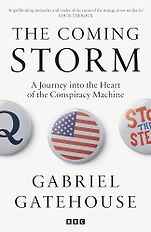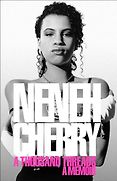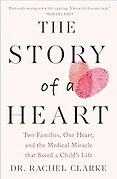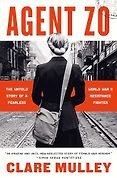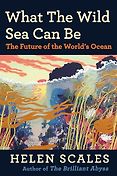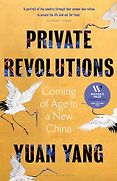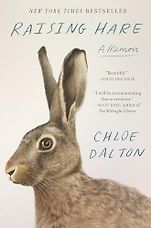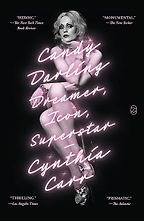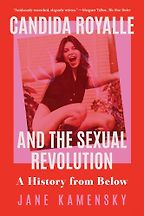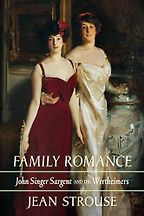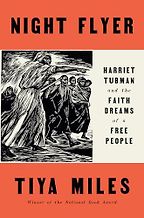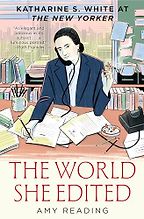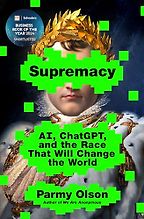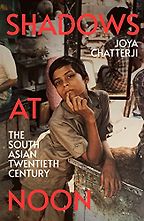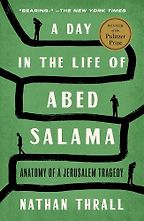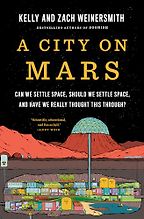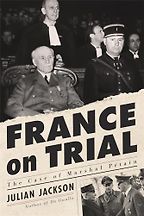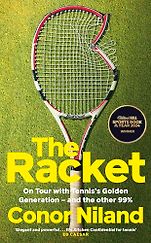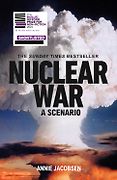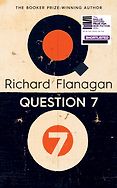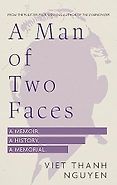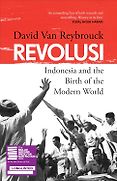Nonfiction Books
Last updated: July 03, 2025
Across our site, we have thousands of nonfiction book recommendations, on a vast array of topics. Below, you'll find some general recommendations, useful if you're in the mood for nonfiction, want to read a really, really good book, but don't mind what it's about.
There are vast numbers of new books published every year, which makes choosing some of the best ones seem somewhat random and subjective. Fortunately, in the UK, we have the Baillie Gifford Prize. Judges scour hundreds of books—many of them lengthy tomes—to find the best books of the year. Our editor, Sophie Roell, also provides regular roundups of new nonfiction being published.
Best Nonfiction of 2024 | History books | True Crime Books | Best Nonfiction of 2023 | Best Biographies | Memoirs & Autobiography | Short Nonfiction | Nonfiction Series| Science books | Philosophy books | Psychology books | Art History books | Economics books | Business Books | Religion books | Critical Thinking Books | Neuroscience Books | Conspiracy Theory Books | Historical Nonfiction |
-

Native Nations: A Millennium in North America
by Kathleen DuVal -

Combee: Harriet Tubman, the Combahee River Raid, and Black Freedom During the Civil War
by Edda L. Fields-Black -

Every Living Thing: The Great and Deadly Race to Know All Life
by Jason Roberts -

To the Success of Our Hopeless Cause: The Many Lives of the Soviet Dissident Movement
by Benjamin Nathans -

Feeding Ghosts: A Graphic Memoir
by Tessa Hulls
2025 Pulitzer Prize Nonfiction Book Winners
2025 Pulitzer Prize Nonfiction Book Winners
Earlier this month, the winners of the 2025 Pulitzer Prizes, awarded annually by Columbia University in New York and founded by Joseph Pulitzer (1847-1911), were announced. The prizes are awarded for a variety of categories across journalism, but also celebrate outstanding books. Below we’ve listed all the books that won in nonfiction book categories (James by Percival Everett won the Pulitzer Prize for Fiction).
-

1
The Greek Revolution and the Violent Birth of Nationalism
by Yanni Kotsonis -

2
Abortion: A History
by Mary Fissell -

3
Maria Theresa: Empress
by Richard Bassett -

4
Stronger: The Untold Story of Muscle in Our Lives
by Michael Joseph Gross -

5
House of Huawei: The Secret History of China's Most Powerful Company
by Eva Dou
Notable Nonfiction Books of Early 2025, recommended by Sophie Roell
Notable Nonfiction Books of Early 2025, recommended by Sophie Roell
As March draws to a close, Sophie Roell, editor of Five Books, looks at some of the nonfiction books that have come out in the first three months of 2025, from the biography of one of the world’s great female leaders to better ways to measure a country’s economy.
-

1
In Cold Blood
by Truman Capote -

2
A Thread of Violence: A Story of Truth, Invention, and Murder
by Mark O'Connell -

3
This House of Grief: The Story of a Murder Trial
by Helen Garner -

4
The Wager: A Tale of Shipwreck, Mutiny and Murder
by David Grann -

5
Ghosts of the Tsunami: Death and Life in Japan's Disaster Zone
by Richard Lloyd Parry
The Best Historical Nonfiction Books, recommended by Kate Summerscale
The Best Historical Nonfiction Books, recommended by Kate Summerscale
British author Kate Summerscale has mastered the art of writing historical nonfiction books that are real page-turners. Here, she shares some of her own favorites, from the murder of a family in 1959 Kansas to the tragedy of Japan after the 2011 tsunami.
-

1
Italy Reborn: From Fascism to Democracy
by Mark Gilbert -

2
Catland: Feline Enchantment and the Making of the Modern World
by Kathryn Hughes -

3
The Scapegoat: The Brilliant Brief Life of the Duke of Buckingham
by Lucy Hughes-Hallett -

4
Forbidden Desire in Early Modern Europe: Male-Male Sexual Relations, 1400-1750
by Noel Malcolm -

5
Wild Thing: A Life of Paul Gauguin
by Sue Prideaux -

6
Impossible Monsters: Dinosaurs, Darwin, and the Battle Between Science and Religion
by Michael Taylor
The Best Nonfiction Books: The 2025 Duff Cooper Prize, recommended by Minoo Dinshaw
The Best Nonfiction Books: The 2025 Duff Cooper Prize, recommended by Minoo Dinshaw
It’s a nonfiction book prize that values “style, rigour, argument, meatiness, readability, freshness, oddity and individuality,” says Minoo Dinshaw, author of Friends in Youth and one of this year’s judges. He introduces the six brilliant books that made the shortlist of this year’s Pol Roger Duff Cooper Prize, from the history of post-World War II Italy to the disputes caused by the discovery of dinosaur fossils.
-

1
Russia Starts Here: Real Lives in the Ruins of Empire
by Howard Amos -

2
The Baton and the Cross: Russia's Church from Pagans to Putin
by Lucy Ash -

3
To the Success of Our Hopeless Cause: The Many Lives of the Soviet Dissident Movement
by Benjamin Nathans -
4
Patriot: A Memoir
by Alexei Navalny, translated by Arch Tait with Stephen Dalziel -

5
To Run the World: The Kremlin's Cold War Bid for Global Power
by Sergey Radchenko -

6
‘A Seditious and Sinister Tribe’: The Crimean Tatars and Their Khanate
by Donald Rayfield
The Best Nonfiction Books on Russia: The 2025 Pushkin House Prize, recommended by Gulnaz Sharafutdinova
The Best Nonfiction Books on Russia: The 2025 Pushkin House Prize, recommended by Gulnaz Sharafutdinova
The Pushkin House Book Prize is awarded annually for a nonfiction book that encourages “public understanding and intelligent debate about Russia.” Political scientist Gulnaz Sharafutdinova, chair of this year’s judging panel, talks us through the six fantastic books shortlisted in 2025, illuminating different parts of Russia’s politics and history — from the memoir of opposition leader Alexei Navalny, who died in prison in 2024, to a history of the Russian Orthodox Church and its role in propping up political regimes from the Middle Ages to the present.
-

At the Edge of Empire: A Family's Reckoning with China
by Edward Wong -

Autocracy, Inc.: The Dictators Who Want to Run the World
by Anne Applebaum -

Broken Threads: My Family from Empire to Independence
by Mishal Husain -

Looking at Women Looking at War: A War and Justice Diary
by Victoria Amelina -

The Baton and the Cross: Russia's Church from Pagans to Putin
by Lucy Ash
The Best Politics Books of 2025: The Orwell Prize for Political Writing
The Best Politics Books of 2025: The Orwell Prize for Political Writing
From conspiracy theories wreaking havoc in US politics to poignant memoirs of painful events around the globe, the books shortlisted for the 2025 Orwell Prizes, the UK’s most prestigious awards for writing about politics, have been announced. These are the eight books shortlisted for the ‘Orwell Prize for Political Writing,’ awarded annually to a nonfiction book. The comments are from the judging panel, chaired by UK diplomat and former ambassador to the US Kim Darroch.
-

1
A Thousand Threads: A Memoir
by Neneh Cherry -

2
The Story of a Heart
by Rachel Clarke -

3
Raising Hare
by Chloe Dalton -

4
Agent Zo: The Untold Story of a Fearless World War II Resistance Fighter
by Clare Mulley -

5
What the Wild Sea Can Be: The Future of the World’s Ocean
by Helen Scales -

6
Private Revolutions: Coming of Age in a New China
by Yuan Yang
The Best Nonfiction Books: The 2025 Women’s Prize for Nonfiction, recommended by Kavita Puri
The Best Nonfiction Books: The 2025 Women’s Prize for Nonfiction, recommended by Kavita Puri
Now in its second year, the Women’s Prize for Nonfiction aims to highlight the very best new nonfiction books written by women. We asked Kavita Puri, the journalist and chair of this year’s judging panel, to talk us through the shortlist: from a gentle lockdown animal memoir to a thrilling true story of a WW2 secret agent.
-

1
Candy Darling: Dreamer, Icon, Superstar
by Cynthia Carr -

2
Candida Royalle and the Sexual Revolution: A History from Below
by Jane Kamensky -

3
Family Romance: John Singer Sargent and the Wertheimers
by Jean Strouse -

4
Night Flyer: Harriet Tubman and the Faith Dreams of a Free People
by Tiya Miles -

5
The World She Edited: Katharine S. White at The New Yorker
by Amy Reading
The Best Biographies: The 2025 NBCC Shortlist, recommended by Mary Ann Gwinn
The Best Biographies: The 2025 NBCC Shortlist, recommended by Mary Ann Gwinn
We always look forward to the shortlists for the National Book Critics Awards, on the basis that literary critics are probably the best read people out there. Here, we asked the garlanded critic Mary Ann Gwinn to talk us through the five biographies highlighted in 2025.
-

Supremacy: AI, ChatGPT, and the Race that Will Change the World
by Parmy Olson -

Shadows at Noon: The South Asian Twentieth Century
by Joya Chatterji -

A Day in the Life of Abed Salama
by Nathan Thrall -

A City on Mars: Can We Settle Space, Should We Settle Space, and Have We Really Thought This Through?
by Kelly and Zach Weinersmith -

France on Trial: The Case of Marshal Pétain
by Julian Jackson
10 Award-Winning Nonfiction Books of 2024
10 Award-Winning Nonfiction Books of 2024
The nonfiction book prizes we cover at Five Books are a great way to keep up with books on important subjects that are written in an accessible and engaging way. We keep an eye on prizes in a range of nonfiction genres—including history, politics, business, science, sports and general nonfiction.
-

1
Nuclear War: A Scenario
by Annie Jacobsen -

2
Question 7
by Richard Flanagan -

3
The Story of a Heart
by Rachel Clarke -

4
A Man of Two Faces: A Memoir, A History, A Memorial
by Viet Thanh Nguyen -

5
Wild Thing: A Life of Paul Gauguin
by Sue Prideaux -

6
Revolusi: Indonesia and the Birth of the Modern World
by David Van Reybrouck
The Best Nonfiction Books: The 2024 Baillie Gifford Prize Shortlist, recommended by Isabel Hilton
The Best Nonfiction Books: The 2024 Baillie Gifford Prize Shortlist, recommended by Isabel Hilton
From nuclear war to a heartbreaking medical story, from the memoirs of novelists and the life of an artist to the struggle for independence in Indonesia, British journalist Isabel Hilton introduces the six books that made the shortlist of the UK’s most prestigious nonfiction prize.
